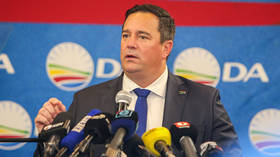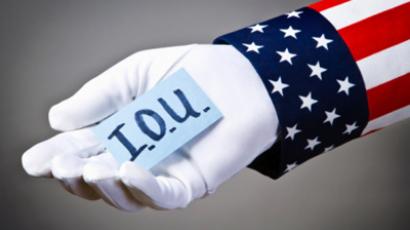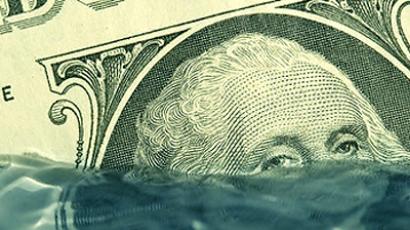Obama and Republicans reach agreement on debt deal
US President Barack Obama and Republican leaders in Congress have reached a deal on the debt ceiling, thus averting the threat of a disastrous default. However, the reputation and credibility of the US economy have already been damaged.
Obama reached the historic agreement on Sunday night following intense talks with Democrat and Republican leaders. The compromise will permit US borrowing to continue after Tuesday in exchange for more than $2 trillion in long-term spending cuts.However, the political struggle is far from over, with the most important issue of how to best balance the budget being put off until a later date.The debate over the debt ceiling has created a climate of uncertainly around the US economy.“The damage has been done. No matter what happens now. Everybody rethinks the United States – it isn’t so secure, it isn’t so safe,” says economist Richard Wolf.“And who knows whether next month, next year, this won’t blow up again since the underlying causes, the economic problems, are getting worse in this country,” he adds.Foreign countries own $4.5 trillion of the US’s borrowings. Experts warn that due to Washington’s mismanagement, investors may abandon the devalued dollar and end their partnership with America.“We are not alone now in our ability to be a repository for financing in the world,” says economist and author Stuart Diamond. The world’s largest rating agencies, Moody’s, S&P and Fitch, had threatened to revise the US’s credit rating unless the deal was hammered out.The country is spending its savings to pay the debt but is not doing anything to fix the economy, warns public policy expert Erica Payne from Agenda Project.“We are putting ourselves into a bigger and bigger hole not just because of the debt, but really because we are not creating any way to get out of the debt,” she says.The whole row about the debt ceiling has been, from the start, about scoring political points and not about solving the real problem, says Puru Saxena, an expert in investment opportunities in unpopular and distressed markets.“They are trying to show to the public that they care more about the debt than the other party. The reality is whether there were Democrats of Republicans – for the last 30-40 years they all printed money, they all borrowed, they all spent and lived beyond their means, so they’re equally to blame,” he told RT.“So this is just political jawboning, and no matter who comes into power this problem has now become too big for anyone to solve. I don’t think anybody has the political will to take the pain and take the recession and the depression to get out of this mess. Everybody just likes to kick the can down the road and print the money,” he added.














